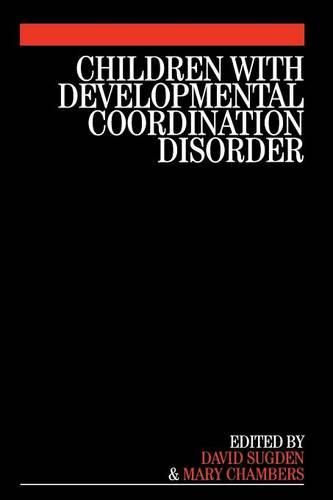Readings Newsletter
Become a Readings Member to make your shopping experience even easier.
Sign in or sign up for free!
You’re not far away from qualifying for FREE standard shipping within Australia
You’ve qualified for FREE standard shipping within Australia
The cart is loading…






The term Developmental Coordination Disorder (DCD) is used to describe a group of children who have difficulty with tasks involving movement such that it interferes with their daily living or academic progress. As with other developmental disorders such as autistic spectrum disorder, attention deficit disorder and dyslexia, DCD is now a prominent concern of both researchers and practitioners.This text is aimed at both researchers and professionals who work in a practical manner with the condition and includes professionals in health, occupational therapists, physiotherapists, health visitors, paediatricians, and - in the educational field - teachers and others who are in daily contact with the children - their parents. The essence of the text is that work with children should be guided by research evidence driving the clinical practice which in turn raises more questions for research. The authors in this text have both experience in research and are engaged in the day-to-day clinical work with children and bring both of these to bear in the chapters they have written.
$9.00 standard shipping within Australia
FREE standard shipping within Australia for orders over $100.00
Express & International shipping calculated at checkout
The term Developmental Coordination Disorder (DCD) is used to describe a group of children who have difficulty with tasks involving movement such that it interferes with their daily living or academic progress. As with other developmental disorders such as autistic spectrum disorder, attention deficit disorder and dyslexia, DCD is now a prominent concern of both researchers and practitioners.This text is aimed at both researchers and professionals who work in a practical manner with the condition and includes professionals in health, occupational therapists, physiotherapists, health visitors, paediatricians, and - in the educational field - teachers and others who are in daily contact with the children - their parents. The essence of the text is that work with children should be guided by research evidence driving the clinical practice which in turn raises more questions for research. The authors in this text have both experience in research and are engaged in the day-to-day clinical work with children and bring both of these to bear in the chapters they have written.